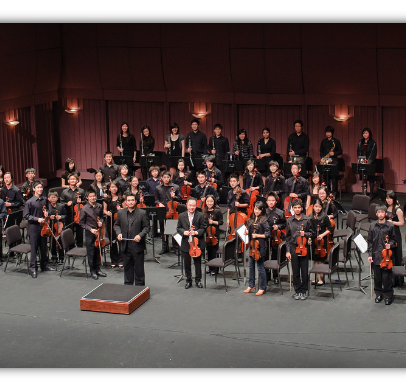Albert D Wu
age ~75
from Orangeburg, NY
- Also known as:
-
- Albert David Wu
- Ann F Wu
- Ann Fei Wu
- Albert D David
- Wu Wu
- Albert U
- David Albert
- Phone and address:
-
201 Rutgers Rd, Orangeburg, NY 10962
(845)3590858
Albert Wu Phones & Addresses
- 201 Rutgers Rd, Orangeburg, NY 10962 • (845)3590858
- Floral Park, NY
- Brooklyn, NY
- Garden City, NY
- Fort Lee, NJ
- Jamaica, NY
Work
-
Company:MT SINAI MEDICAL CENTER
-
Address:1 Gustave L Levy Pl Suite 1183, New York, NY 10029
-
Phones:(212)2416752 (212)2895945
Education
-
School / High School:University of Washington1999
Languages
English
Specialities
Ophthalmology
Isbn (Books And Publications)


Medicine Doctors

Dr. Albert Y Wu, New York NY - MD (Doctor of Medicine)
view sourceSpecialties:
Ophthalmology
Address:
17 E 102Nd St Suite 8Th, New York, NY 10029
(212)2410939 (Phone)
MT SINAI MEDICAL CENTER
1 Gustave L Levy Pl Suite 1183, New York, NY 10029
(212)2416752 (Phone), (212)2895945 (Fax)
(212)2410939 (Phone)
MT SINAI MEDICAL CENTER
1 Gustave L Levy Pl Suite 1183, New York, NY 10029
(212)2416752 (Phone), (212)2895945 (Fax)
Languages:
English
Education:
Medical School
University of Washington
Graduated: 1999
University of Washington
Graduated: 1999

Albert Y. Wu
view sourceSpecialties:
Ophthalmology
Work:
Mount Sinai Medical Center Ophthalmology
17 E 102 St FL 8W, New York, NY 10029
(212)2410939 (phone), (212)8242325 (fax)
17 E 102 St FL 8W, New York, NY 10029
(212)2410939 (phone), (212)8242325 (fax)
Education:
Medical School
University of Washington SOM
Graduated: 2005
University of Washington SOM
Graduated: 2005
Procedures:
Ophthalmological Exam
Corneal Surgery
Lens and Cataract Procedures
Skin Tags Removal
Corneal Surgery
Lens and Cataract Procedures
Skin Tags Removal
Conditions:
Bell's Palsy
Cataract
Fractures, Dislocations, Derangement, and Sprains
Glaucoma
Keratitis
Cataract
Fractures, Dislocations, Derangement, and Sprains
Glaucoma
Keratitis
Languages:
English
Korean
Russian
Spanish
Korean
Russian
Spanish
Description:
Dr. Wu graduated from the University of Washington SOM in 2005. He works in New York, NY and specializes in Ophthalmology. Dr. Wu is affiliated with Elmhurst Hospital Center and Mount Sinai Medical Center.

Albert B. Wu
view sourceSpecialties:
Psychiatry
Work:
Hampton Behavioral Health Center
650 Rancocas Rd, Mount Holly, NJ 08060
(609)2677000 (phone), (609)5182210 (fax)
650 Rancocas Rd, Mount Holly, NJ 08060
(609)2677000 (phone), (609)5182210 (fax)
Education:
Medical School
Northwestern University Feinberg School of Medicine
Graduated: 2000
Northwestern University Feinberg School of Medicine
Graduated: 2000
Conditions:
Anxiety Phobic Disorders
Bipolar Disorder
Depressive Disorders
Bipolar Disorder
Depressive Disorders
Languages:
English
Spanish
Spanish
Description:
Dr. Wu graduated from the Northwestern University Feinberg School of Medicine in 2000. He works in Westampton, NJ and specializes in Psychiatry. Dr. Wu is affiliated with Hampton Behavioral Health Center.

Albert Bing-Ru Wu
view sourceSpecialties:
Psychiatry
Geriatric Psychiatry
Geriatric Psychiatry
Education:
Northwestern University (2000)
Name / Title
Company / Classification
Phones & Addresses
President
China 1221 Inc
Eating Place
Eating Place
1221 2 Ave, New York, NY 10065
President
WING WAH REALTY CORP
Operator of Non-Residential Building
Operator of Non-Residential Building
50 Mott St, New York, NY 10013
(212)9623459
(212)9623459
Mbr
Oakland Lakes LLC
Business Services at Non-Commercial Site
Business Services at Non-Commercial Site
22160 58 Ave, Flushing, NY 11364
Ophthalmology
Mt Sinai Medical Center
Medical Doctor's Office
Medical Doctor's Office
100 St F Ave, New York, NY 10029
Us Patents
-
Removable Laser Disc Mass Storage Device With Onboard Fast Access Memory
view source -
US Patent:20070053250, Mar 8, 2007
-
Filed:Aug 30, 2005
-
Appl. No.:11/162131
-
Inventors:Albert Wu - Paramus NJ, US
-
International Classification:G11B 21/08
G11B 7/24 -
US Classification:369030860, 720718000
-
Abstract:This invention is a mass storage system based on laser disc technology. While there are various laser discs players available, they are all aimed at serving an audio/visual entertainment purpose with no consideration given to the ability of this type of media to service the vast amount of data created in the information age. This invention will help users manage a vast laser disc collection, secure all information through backup, and make volumetric data truly portable.
-
Controlled Space With Anti-Shock Function For Automotive Electronics
view source -
US Patent:20100051778, Mar 4, 2010
-
Filed:Sep 3, 2008
-
Appl. No.:12/203147
-
Inventors:Albert Taan Wu - Paramus NJ, US
-
International Classification:F16M 13/00
-
US Classification:248562, 2807281
-
Abstract:The invention described is a controlled environment designed to house automotive onboard electronics. In general, the vibration and impact a moving vehicle experiences is detrimental to certain electronic components such as hard disk drives. Only the high-end automobiles that are equipped with elaborated shock absorbing devices may provide a suitable operating environment for these delicate electronics. Based on a completely different approach, this invention is to create a controlled space with a novel apparatus to reduce the shock and vibration within its domain regardless of what the automobile experiences. Therefore, the electronic components that reside inside this controlled space will experience far less severe impact thus enhance their chance of survival.
-
Thermally Controlled, Anti-Shock Apparatus For Automotive Electronics
view source -
US Patent:20110100666, May 5, 2011
-
Filed:Nov 3, 2009
-
Appl. No.:12/611868
-
Inventors:Albert T. Wu - Paramus NJ, US
-
International Classification:H02G 3/03
H01B 3/00 -
US Classification:174 151, 174 17 R
-
Abstract:A thermally controlled, anti-shock apparatus for protecting an automotive electronic device. The apparatus includes a first housing having sidewalls that define an interior cavity. A second housing having a reservoir containing fluid is disposed within the interior cavity of the first housing. A sealed housing for carrying the electronic device is disposed within the fluid in the reservoir of the second housing, wherein the fluid provides buoyancy for keeping the sealed housing at least partially afloat within the reservoir. The sealed housing includes an inner fluid impermeable bag for enclosing the protected electronic device and an outer fluid impermeable bag in which the inner bag and electronic device are disposed. A cooling system condenser includes condenser tubing connected to one or more heat dissipating members that are mounted on a thermally conductive panel using one or more high strength magnets.
-
Cargo Container Security System
view source -
US Patent:20120050531, Mar 1, 2012
-
Filed:Aug 26, 2010
-
Appl. No.:12/869594
-
Inventors:Albert T. Wu - Paramus NJ, US
-
International Classification:H04N 7/18
G11B 23/00
G08B 21/00 -
US Classification:348143, 340540, 3692631, G9B 23, 348E07085
-
Abstract:A cargo container security system and method, including a cargo container with at least one sensor for detecting an open or closed status of a door on the cargo container and a geographic positioning locator for identifying a location of the cargo container. A control unit, located on the cargo container and operatively connected to the at least one sensor and geographic positioning locator, continuously receives historical data corresponding to at least the status of the cargo container door and location of the cargo container while the cargo container is in transit. The control unit assigns a timestamp to the received historical data, and stores the received historical data and associated timestamp in memory. A central computer system receives and analyzes the stored historical data for any anomalies upon the arrival of the cargo container at a destination. The central computer system generates an alert if an anomaly is identified.
-
Sun-Synchronous Sun Ray Blocking Device For Use In A Spacecraft Having A Directionally Controlled Main Body
view source -
US Patent:61023396, Aug 15, 2000
-
Filed:Apr 17, 1998
-
Appl. No.:9/062594
-
Inventors:Albert T. Wu - Paramus NJ
Linchih O. Liu - West Winsor Township, Mercer County NJ -
Assignee:Turbosat Technology, Inc. - Princeton Junction NJ
-
International Classification:B64G 144
-
US Classification:244173
-
Abstract:A sun-synchronous sun ray blocking device for use in a spacecraft having a directionally controlled main body, such as a low inclination angle earth (as well as other planets) orbit spacecraft, that is, a three axis stabilized spacecraft having north, south, east, west, earth and anti-earth panels defining a spacecraft main body. The north and south panels, on which the spacecraft equipment with high heat dissipation is usually mounted, have their planar normal axes relatively parallel to the spinning axis of the earth. Normal to each of the north and south panel, a solar panel loaded with solar cells is extended and is directly rotating about the same axis. The solar panels are controlled in such a way that the solar cells side of the panels always faces the sun. Each solar panel's blocking device is situated between the solar panel and sun, attached to its solar panel and rotated therewith, to block the sunlight from the north and south panels, providing a stable, benign thermal environment for those panels.
Lawyers & Attorneys

Albert Wu - Lawyer
view sourceSpecialties:
Trusts & Estates
ISLN:
922649738
Admitted:
2013
University:
Harvard Univ Law School, Cambridge, MA; Univ of California Berkeley, Berkeley, CA
Resumes

Albert Wu
view sourceWork:
SAT I Math
2009 to 2011
History tutor Success Chess Chess Teacher
Jan 2008 to Apr 2008 Electronic Arts
Jan 2005 to Mar 2005
Customer Quality Control Tester Vector Marketing Corporation
Apr 2002 to Jul 2002
Advanced Sales Representative
2009 to 2011
History tutor Success Chess Chess Teacher
Jan 2008 to Apr 2008 Electronic Arts
Jan 2005 to Mar 2005
Customer Quality Control Tester Vector Marketing Corporation
Apr 2002 to Jul 2002
Advanced Sales Representative
Myspace
Googleplus

Albert Wu
Lived:
Berlin, Germany
Hsinchu, Taiwan
Berkeley, CA
New York, NY
Hsinchu, Taiwan
Berkeley, CA
New York, NY
Education:
UC Berkeley, Columbia University
About:
I am a graduate student at the University of California, Berkeley, studying the history of German missionaries in China in the late 19th and early 20th centuries.

Albert Wu
Work:
Vivere
Education:
Binus University - Computerized Accounting System
Tagline:
Sleepy head... LOL ^^

Albert Wu

Albert Wu
Work:
Oakland Lakes LLC - Acquisitions Manager
Education:
State University of New York at Stony Brook - Computer Science
About:
Real estate investor investing in multifamily commercial properties in emerging markets.

Albert Wu
Education:
Union County Magnet High School, Massachusetts Institute of Technology - Computer Science

Albert Wu
Education:
University of California, Berkeley
About:
Savoring life all over the planet

Albert Wu (Iyca)
Work:
Irvine Young Concert Artists - Executive Director

Albert Wu
Tagline:
Lol
Flickr
Plaxo

Albert Wu
view sourceNew YorkTailored home Solutions

Albert Wu
view sourceJohns Hopkins Univerrsity

Albert Wu
view sourceSan Francisco Bay Area

Albert Wu
view sourceGrand Fortress Int'l Ltd.
Classmates

Albert Wu
view sourceSchools:
Tullahoma High School Tullahoma TN 1975-1979
Community:
Dennis Elrod, Jerry Bentley, Bill Pack

Albert Wu
view sourceSchools:
Our Lady of Pompeii School New York NY 1988-1991
Community:
Virginia Ferrerio, Steven Flood, Louis Baldaccini, Anita D'amico

Albert Wu
view sourceSchools:
Spuyten Duyvil Public School 24 Bronx NY 1954-1958
Community:
Mel Fixman, Lynne Steinberg, Paul Oppenheimer, Dayna Zeligman, Melody Estevez

Albert Wu
view sourceSchools:
David A. Stein Middle School 141 Bronx NY 1958-1962
Community:
Leonard Berins, Rena Wechter, Meryl Freundlich, Ivan Yates, Arline Haessler, Sylvan Tieger, Matthew Gutin, Ron Howard

Albert Wu
view sourceSchools:
Cardozo High School Bayside NY 1979-1983
Community:
Jack Angelou, Ben Handy, Robyn Denby, Theresa Dawkins

Our Lady of Pompeii Schoo...
view sourceGraduates:
Eileen Mc Gowan Muzio (1945-1954),
Daniel Dottavio (1970-1974),
Albert Wu (1992-1996),
Lenore Pampalone (1956-1960)
Daniel Dottavio (1970-1974),
Albert Wu (1992-1996),
Lenore Pampalone (1956-1960)

Huntington Intermediate S...
view sourceGraduates:
Albert Wu (2001-2004),
Eve Julius (2005-2009),
Mark Vanderhoof (1963-1967),
Torun Almer (1957-1959),
Johnson Paul Johnson (1976-1980)
Eve Julius (2005-2009),
Mark Vanderhoof (1963-1967),
Torun Almer (1957-1959),
Johnson Paul Johnson (1976-1980)
Youtube

Albert Wu
view source
Albert Wu
view source
Albert Idaho Wu
view source
Wu Albert
view source
Albert Vincent Wu
view source
Albert Wu
view source
Albert Wu
view source
Albert Wu
view sourceGet Report for Albert D Wu from Orangeburg, NY, age ~75

















